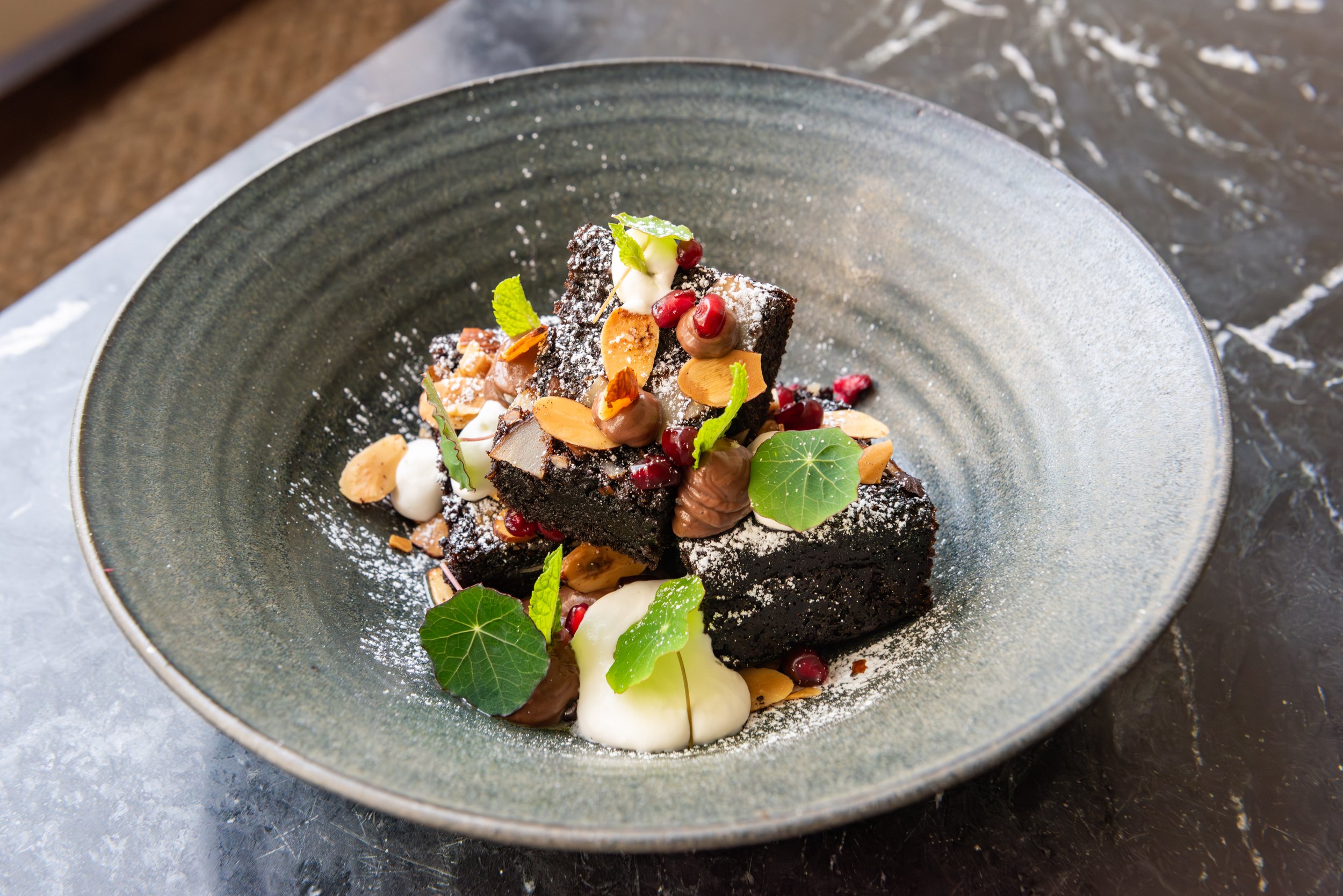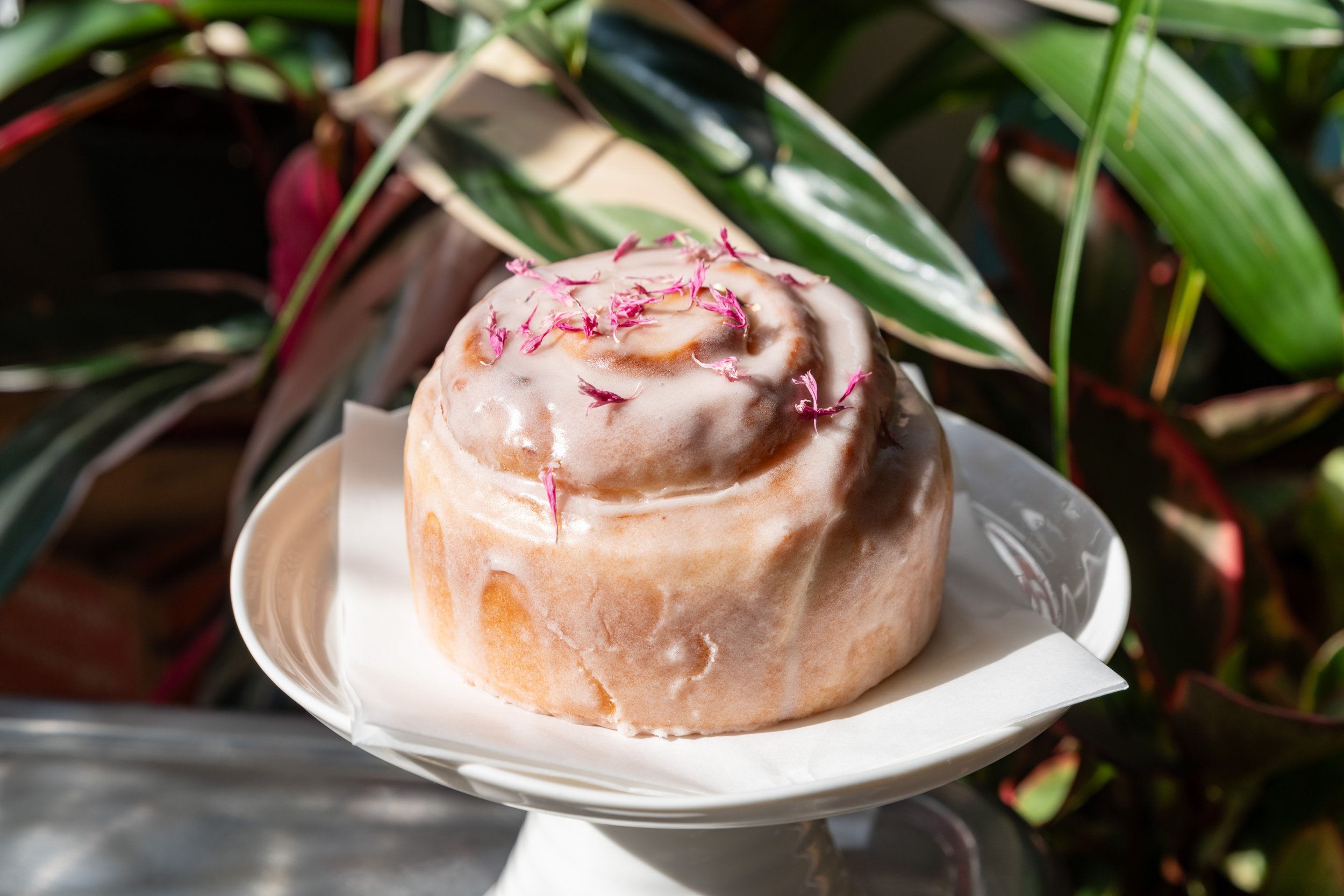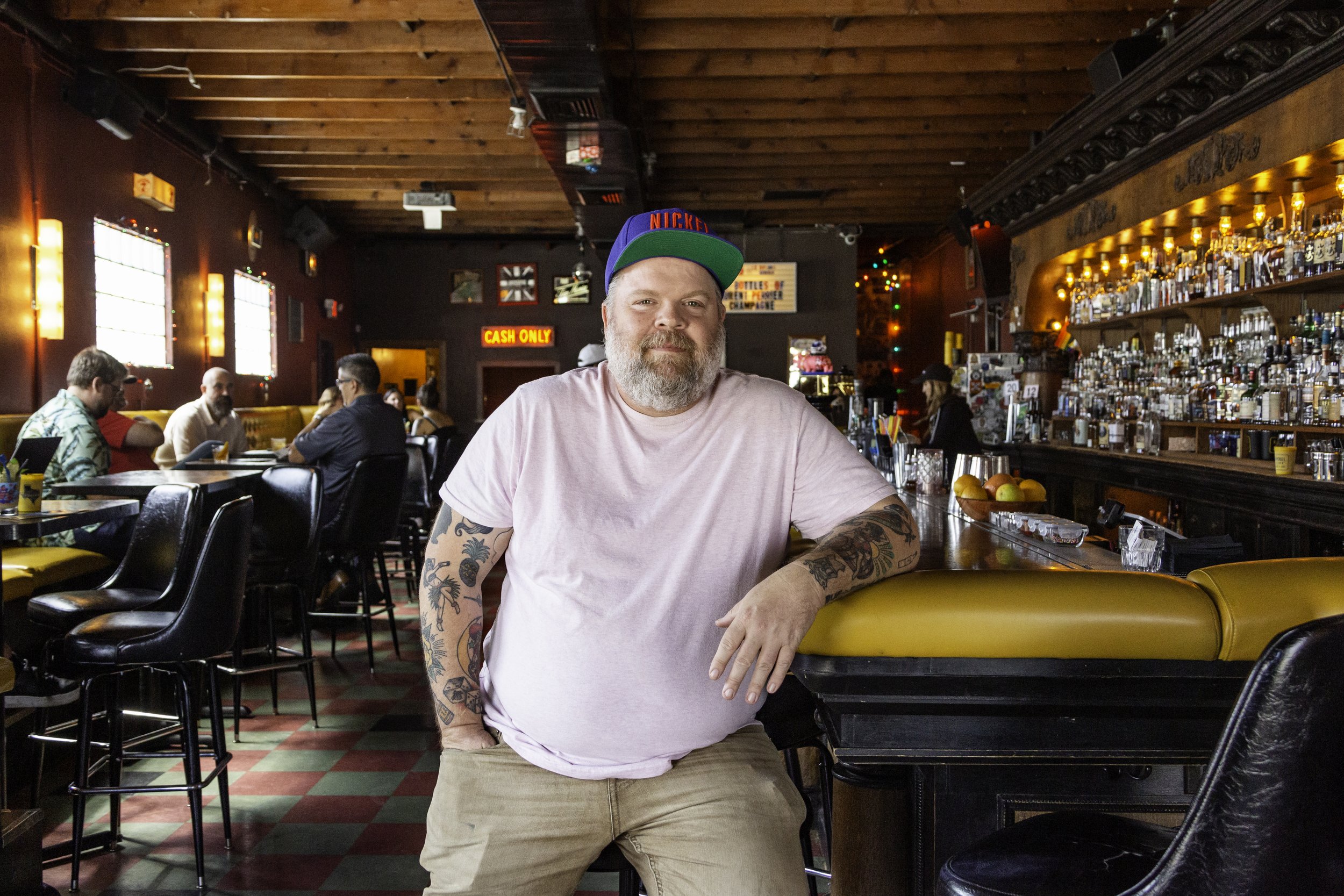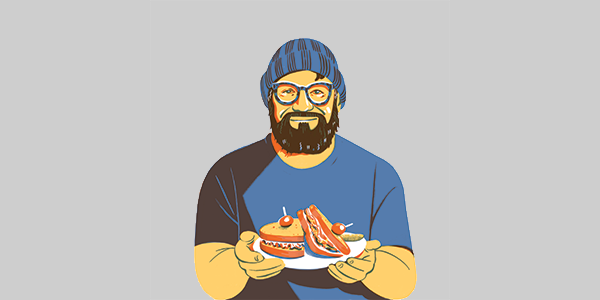Funny Business
Chef Eli Sussman on community building, side gigs, and the power of social media
Chef Eli Sussman | Photo: Alexander Zeren
IIf you only know him as the guy behind the popular industry-meme-churning Instagram account @thesussmans, you might think Eli Sussman is just another jaded cook seeking viral numbers on the internet in hopes of pissing some people off.
But in reality, Sussman’s multi-hyphenate status as chef-owner-influencer-author-host was built on a desire to bring the hospitality community together. Alongside his work as executive chef-partner of Gertrude’s in Prospect Heights, Sussman leverages his position as satirical steward of social media, along with other projects—including four cookbooks and an interview show—to support his restaurant business, spark creativity, and provide guidance for the next generation of industry professionals. Contributing Editor Lizzie Takimoto sat down with Sussman to discuss the current food media landscape and how his involvement has impacted him as a chef.
Lizzie Takimoto: You’ve opened multiple restaurants, from Ed & Bev’s Detroit-Style Coney Island in 2015, to an eight-plus year run with Samesa with multiple locations across New York City, to now running Gertrude’s for the past year and a half. What was the biggest lesson you learned about operating restaurants? Have your other creative outlets been an essential part of that journey?
Eli Sussman: I knew nothing going in about the amount of hard work it takes [to open a restaurant], and the various aspects that had nothing to do with cooking. I always say, I wish I hadn’t opened Samesa so quickly. We learned everything on the fly. I wish I had spent more time working for other people since you are getting paid to learn from someone else. So I always suggest to people, take one more chef de cuisine job. Overall, being in this industry is riskier and more challenging than having a traditional job with benefits, a 401(k), and a company with infrastructure. I'm not sure people who want to open up a restaurant realize that part of the game is not only putting out amazing food and managing finances and staff, but also having to do the external work as well. You have to know folks that work on the media side—people who can cut through the noise of whatever city you are in. Because a lot of places open every year, you need to differentiate yourself, and sometimes just cooking good food is not enough, unfortunately.
LT: So, you’ve also written four books and have a fifth in the works. Why are books an important outlet for you?
ES: Cookbooks are a business card for a chef, especially if it's directly correlated to your restaurant, though mine were not. [They] led to so many other opportunities, like a 150-episode podcast. That increased my visibility, and then we did a web series with Vice. They all impact and help each other. It’s all a snowball rolling and getting bigger. It helps [the restaurant] to have a chef who’s visible.
LT: What was your goal with @thesussmans and how has that changed over the past five years? Has your social media presence impacted your philosophy as a chef or changed your approach to running your restaurant?
ES: [In the beginning], I was very fearful about what was going to happen to my employees and I, and I had a huge financial burden hanging over my head. It manifested in my brain exploding on the internet in meme form—scared, anxious, and worried. So I was sitting at home, commiserating with other industry members across the country, and I'd get more fodder. It brought the community together.
Now my goal with social media is to ride it until the wheels fall off. I don't know where it's going, but I know it's resonating, and that I love doing it. You definitely don’t have to do what I do, it’s the extreme version of self promotion, a caricature. But I don't think it hurts to have your restaurant talking about itself all the time, and to connect with your audience through various forms. I'm trying to be an amalgamation of everyone in hospitality at the same time—the megaphone of the industry. Don’t be an asshole, and be better than the people that came before you. I think @thesussmans says, it's not just about putting food on a plate, there is so much more.
LT: What inspired your YouTube interview show, @talkininthewalkin?
ES: I had done the podcast on Heritage Radio Network which was great. This gave me the opportunity to do it in person. You get a better conversation. Crying and yelling is allowed. You don't find yourself in a room with other chefs often, to have conversations with someone you might be inspired by. You learn so much in one hour with someone who does what you do but in a different way. I'm trying to achieve an intimacy that I don’t find in most food content. I want to know what's the worst day of your career, and how you can tell a young line cook who maybe is having the worst day of their career how they can deal with that emotionally and move past it. It’s a guidebook for how to run a kitchen. You’re so fortunate if you have a mentor in this industry, but a lot of people don’t.
LT: What do you hope for the future of food media?
ES: I would love to see more money invested in deep-dive journalism, in-depth stories about people and events in hospitality that aren't strictly restaurant and chef-focused. There's a million more stories to tell.
I would also love to see a place where chefs are able to monetize what they do outside of the restaurant in a more effective way. There are so many people who have made money on TikTok and Instagram by getting brand deals. I'd love to see an agency that builds up chefs and a roster of culinary professionals and utilizes them the way influencers are. What I hear from a lot of traditional restaurant people is, “I don't even know how to start,” and even once they get a following, they don't know how to take it to the next level. Restaurants should get brand deals as well. I want to see more of the small folks winning and coming out with awesome partnerships from brands and doing cool stuff and being compensated. I think that there's a world in which restaurants are creating a second revenue stream by being able to monetize what they do as a personality. It's incredibly challenging to make money in restaurants in the traditional way, so the next logical place is to make money outside of those four walls.






